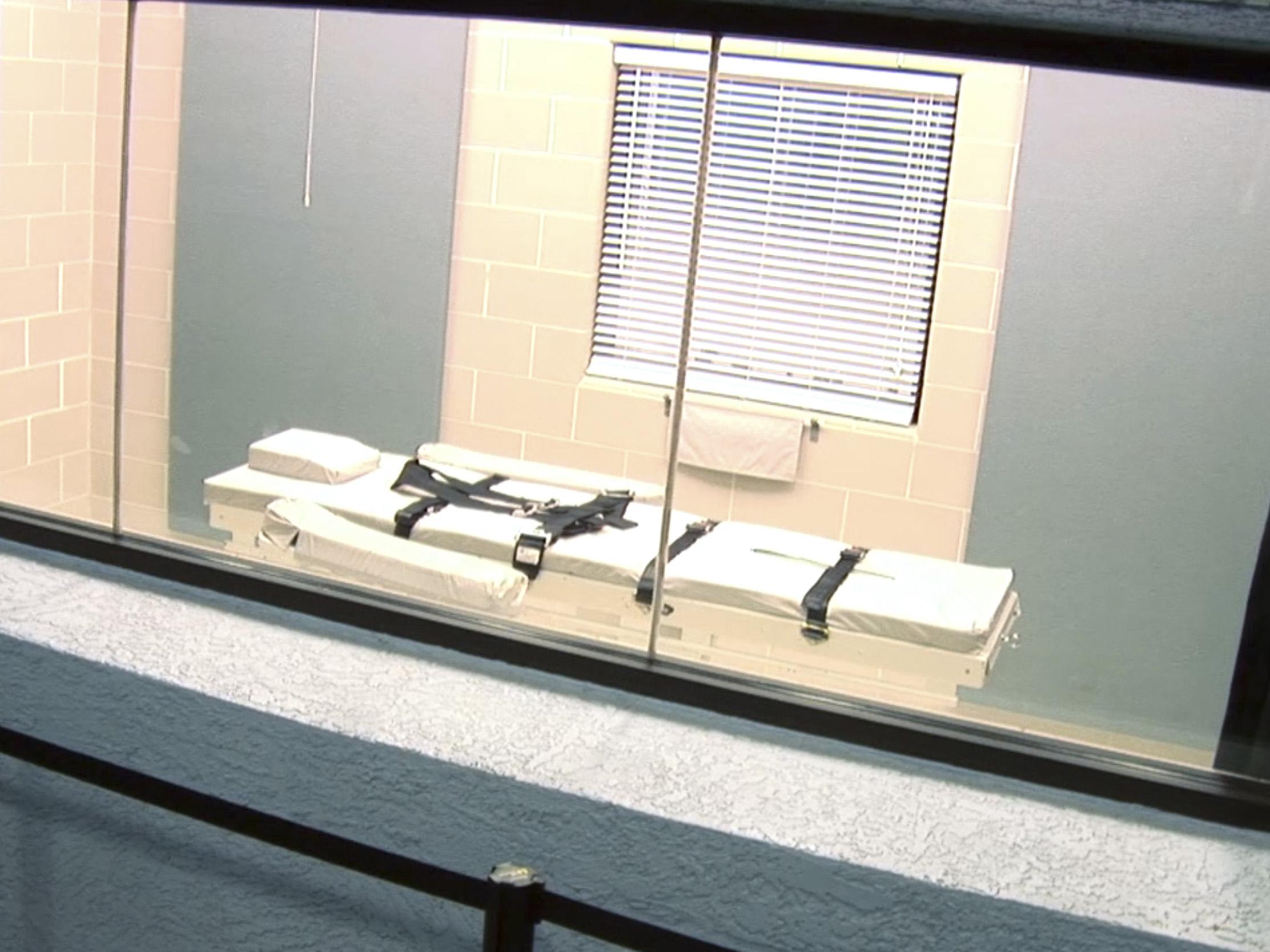US state poised to bring back death penalty
Delaware to vote on resuming execution of felons nine months after Supreme Court ruled it unconstitutional following public outcry over spate of violent crimes

Your support helps us to tell the story
From reproductive rights to climate change to Big Tech, The Independent is on the ground when the story is developing. Whether it's investigating the financials of Elon Musk's pro-Trump PAC or producing our latest documentary, 'The A Word', which shines a light on the American women fighting for reproductive rights, we know how important it is to parse out the facts from the messaging.
At such a critical moment in US history, we need reporters on the ground. Your donation allows us to keep sending journalists to speak to both sides of the story.
The Independent is trusted by Americans across the entire political spectrum. And unlike many other quality news outlets, we choose not to lock Americans out of our reporting and analysis with paywalls. We believe quality journalism should be available to everyone, paid for by those who can afford it.
Your support makes all the difference.The state House is poised to vote on a bill reinstating Delaware's death penalty, which the state Supreme Court declared unconstitutional last year.
The bill was put on Thursday's House agenda just hours after it cleared the Judiciary Committee on a 7-4 vote Wednesday.
Consideration of the legislation comes amid public outcry to the killing of a correctional officer during a prison riot and hostage taking in February, and the fatal shooting of a state trooper last week.
Chief sponsor Representative Steve Smyk, Republican-Milton, said he has not done a vote count but he believes there is more support for the measure among House lawmakers now than there was before the killings of prison guard Steven Floyd and trooper Stephen Ballard.
Smyk said he respects the arguments of death penalty opponents but that government has a responsibility.
“There's no greater voice to remind legislators of that responsibility than to two murders, two executions, in such short order,” he said.
Opponents of the legislation argued that the death penalty is not a deterrent to crime, is too costly, is applied in a racially biased manner against blacks and other minorities, and amounts to state-sponsored murder.
“State sanctioned murder is still murder,” said Molly Keogh, president of Delaware Citizens Opposed to the Death Penalty.
But representatives of the law enforcement community have voiced overwhelming support for the measure.
“There are some truly evil people who commit heinous crimes against innocent citizens in this state,” said Lt. Thomas Brackin, president of the Delaware State Troopers Association. “You do need to have the ultimate punishment for the ultimate crime.”
Under the bill, jurors would have to find unanimously and beyond a reasonable doubt that a defendant should be executed. A judge would have to agree with the jury in order for the death penalty to be imposed but would have the discretion to sentence a defendant to life in prison even if the jury found that the death penalty was warranted.
A majority of Delaware's Supreme Court justices declared the state's death penalty law unconstitutional last August because it allowed judges too much discretion and did not require that a jury find unanimously and beyond a reasonable doubt that a defendant deserves execution.
That ruling came after the US Supreme Court said Florida's death sentencing law, which like Delaware's gave judges the final say, was unconstitutional.
Democratic Governor John Carney has said he supports the court ruling declaring Delaware's death penalty law unconstitutional, but he has not promised to veto legislation reinstating capital punishment. Carney has not taken a public position on the pending legislation but has not ruled out supporting the death penalty for those convicted of killing a member of law enforcement.
Democratic Attorney General Matt Denn has said he would support a law requiring a unanimous jury recommendation before a judge could impose the death penalty. State prosecutor Sean Lugg told lawmakers Wednesday that the attorney general's office believes the bill has addressed the constitutional infirmities noted by the Supreme Court, and that, based on those changes, Denn supports the legislation.
Copyright Associated Press
Join our commenting forum
Join thought-provoking conversations, follow other Independent readers and see their replies
Comments